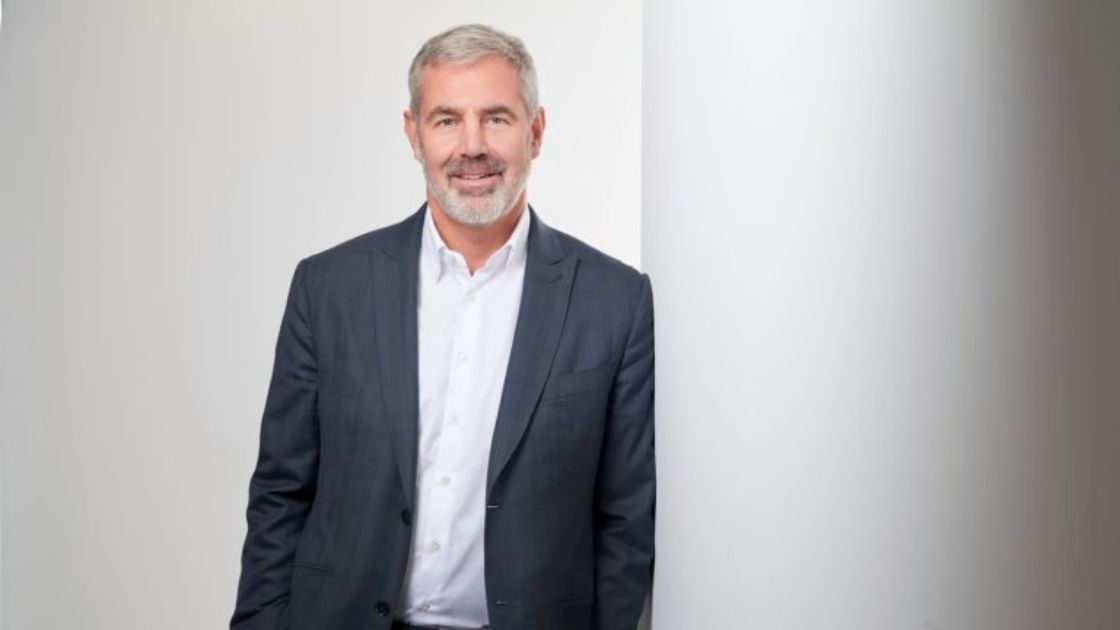Adjusted for portfolio and currency translation effects, organic order intake grew by 0.8 percent. Reported order intake declined by 3.7 percent to EUR 5,469 million. Group revenue rose by 8.4 percent organically and by 4.0 percent on a reported basis to EUR 5,373 million. EBITDA before restructuring expenses rose by EUR 62 million to EUR 774 million. The corresponding EBITDA margin increased to 14.4 percent. Return on capital employed (ROCE) further improved to 32.7 percent. Net working capital as a percentage of revenue amounted to 6.4 percent.
“In the face of the numerous challenges in fiscal year 2023, we managed to further improve our key financial figures. This is yet again testament to our strength and resilience,” says CEO Stefan Klebert. “We would not have achieved these results without our employees, whose extraordinary commitment is crucial to our success. I would like to thank each and every one of them for their vital contribution.”
Slight uptick in organic order intake
In fiscal year 2023, order intake declined by 3.7 percent to EUR 5,469.4 million (2022: EUR 5,678.9 million), primarily due to negative currency translation effects of EUR 221 million. Organically, order intake rose by a slight 0.8 percent. Among the customer industries, beverage and new food recorded double-digit year-on-year growth, while other customer industries saw declines. In the course of the reporting year, GEA secured 13 large orders (volume over EUR 15 million) worth a total of EUR 386 million, notably in the beverage, new food, dairy and chemical customer industries.
Revenue rose by 4.0 percent to EUR 5,373.5 million (2022: EUR 5,164.7 million). At 8.4 percent, organic growth was even significantly higher, thus reaching the forecast level of more than 8.0 percent. All divisions contributed to this strong organic growth – in some cases recording double-digit growth rates. The share of the service business in total revenue also further improved to 36.1 percent (2022: 34.9 percent). This development was driven by almost all customer industries, with only new food and pharma recording year-on-year declines. Revenue growth was likewise registered in all regions, except for Asia-Pacific, where revenue was down on the prior-year level.
Virtually all divisions contributed to positive earnings performance
EBITDA before restructuring expenses rose by EUR 62 million, or 8.7 percent, to EUR 774.3 million (2022: EUR 712.0 million). In addition to improved gross profit, this is attributable to the slight decline in selling expenses and the disproportionately small increase in general administrative expenses. The corresponding EBITDA margin further improved to 14.4 percent (2022: 13.8 percent), reaching the forecast level of at least 14.0 percent. Virtually all divisions contributed to this positive performance, with only Food & Healthcare Technologies recording a temporary decline.
Group profit for fiscal year 2023 came to EUR 392.8 million (2022: EUR 401.4 million). The slight year-on-year decrease was due to the lower profit after tax from discontinued operations as well as higher income tax expenses. At EUR 2.28, earnings per share were on a par with the previous year. Earnings per share before restructuring expenses came to EUR 2.56, compared with EUR 2.58 the year before.
Under the new share buyback program launched in November 2023 (up to EUR 400 million by the beginning of 2025), a total of 1,451,583 shares had been repurchased for EUR 50 million by the end of December; these have since been held as treasury shares.
Net liquidity increased from EUR 346.4 million in the previous year to EUR 371.2 million. Net working capital as a percentage of revenue amounted to 6.4 percent, compared with 6.1 percent in the previous year, and thus remained significantly better than the target range of 8 to 10 percent.
The average capital employed over the last four quarters as of December 31, 2023 increased by EUR 110 million to EUR 1,776 million, largely as a result of an increase in non-current assets and the higher net working capital. At the same time, EBIT before restructuring expenses increased by a substantial 9.7 percent from EUR 529.1 million to EUR 580.6 million. Return on capital employed (ROCE) further improved from 31.8 percent to 32.7 percent. At constant exchange rates, ROCE was 33.1 percent, reaching the forecast level of over 32.0 percent.
Higher dividend of EUR 1.00 per share to be proposed to Annual General Meeting
Based on the good overall operating performance in fiscal year 2023 and in accordance with the company’s dividend policy, the Executive Board and Supervisory Board will propose to the Annual General Meeting that the dividend be raised by EUR 0.05 compared with the previous year to EUR 1.00 per share.
GEA expects continued revenue and margin growth in 2024
Given the strong order backlog and current business performance, GEA anticipates organic revenue growth of 2.0 to 4.0 percent and an EBITDA margin before restructuring expenses of 14.5 to 14.8 percent in fiscal year 2024. With regard to ROCE, the company forecasts a figure of between 29.0 and 34.0 percent.
Medium-term financial targets through to 2026 confirmed
GEA has confirmed the medium-term targets set out in its Mission 26 growth strategy presented in September 2021. These see organic group revenue growing by an average of 4 to 6 percent annually up to 2026 (2023: 8.4 percent). By the end of 2026, the EBITDA margin before restructuring expenses is targeted to increase beyond 15 percent (2023: 14.4 percent) and ROCE to more than 30 percent (2023: 32.7 percent).
GEA affirms its role as sustainability pioneer
At its Annual General Meeting on April 30, 2024, GEA will be the first company in the DAX index family to present to shareholders its Climate Transition Plan 2040 for approval in the form of a consultative vote. In this way, shareholders are actively involved in GEA’s transformation process to becoming a net-zero company. In addition, it means GEA is creating transparency regarding the specific interim targets and the corresponding measures. This step affirms GEA’s role as a pioneer in the field of climate change mitigation.
“For us, it is about both protecting the climate and ensuring GEA’s long-term growth,” emphasizes CEO Stefan Klebert. “The future belongs to intelligent, low-emission solutions that save energy and conserve resources. We intend to continue to lead the way on this journey – giving ourselves and our customers an edge over the competition.”



